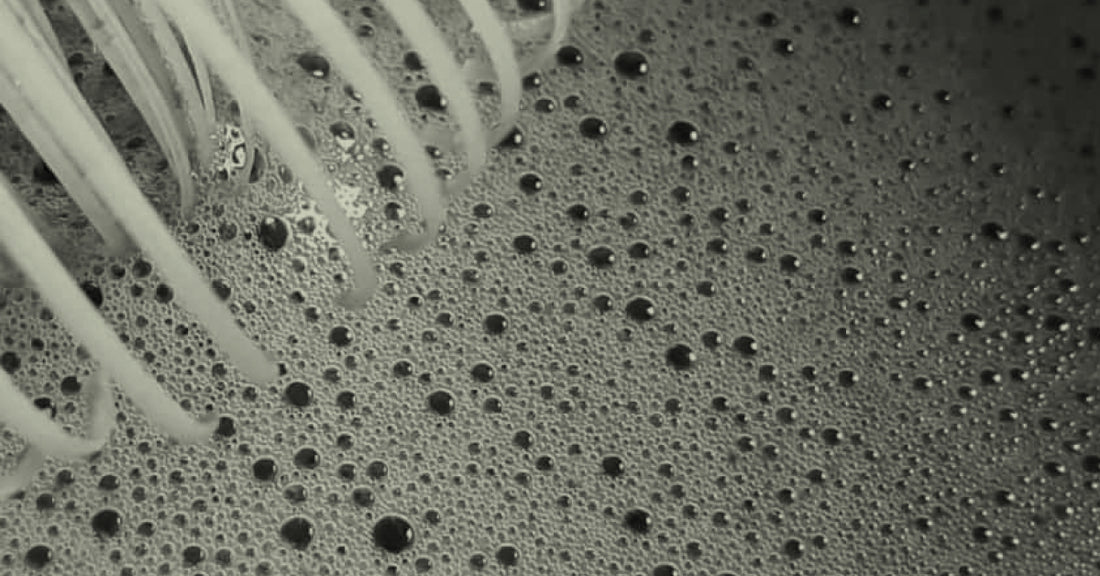What if I told you there is an enjoyable way to get simultaneously energized and calm … and that it carriers a lower risk of over-caffeination and addiction compared to coffee … and that it supports brain function … and that it has been known to the people of Japan for thousands of years?
The all-natural stimulant in question is, of course, matcha. Matcha is the powder of shade-grown, stone-ground green tea leaves. It checks all of the above boxes—and it’s healthy to boot.
“Come on, man,” some of you are saying. “This is old news. Tell me something I don’t know.”
Okay, fine. Here are some things you might not know about matcha:
You don't steep matcha
The most common way to make tea—green tea included—is to steep the leaves in hot water and then throw them away. Matcha, on the other hand, is gyokuro green tea that's been ground into a fine powder and whisked with hot water or milk. Thus, matcha is unique in that you’re consuming the whole leaf when you drink it. Because of this, it can pack roughly 10 times the nutrients of steeped green tea.
It takes about an hour to stone-grind 25-40 grams of matcha
Though some matcha producers now use powdering machines, there are many who still use the old-school method of hand-grinding the leaves with a stone mill or mortar and pestle. This isn’t out of some kind of sentimental adherence to tradition; it’s because using a machine can compromise the taste and aroma of the leaves.
“An industrial mill creates heat if it's milling tea leaves into a powder,” Matcha.com COO Nick Noble explains. “Matcha is sensitive to that heat. Even a little bit of warmth can impact the flavor and degrade it before anyone gets a chance to enjoy it. The granite stone grinding is just so slow that temperature is not an issue, and obviously it also produces an extremely fine particle. We're talking about like three nanometers—much smaller than a hair follicle.”
It’s a part of Zen Buddhist tradition
In the late 1100s, while earning his certification as a Zen teacher in China, the Japanese Buddhist priest Myōan Eisai found that drinking green tea made it easier to meditate. Upon returning to Japan, he founded Japan’s first Zen temple and began planting and distributing green tea seeds. By the time farmers discovered the Tana technique that turns standard green tea leaves into gyokuro leaves, this drink was already inextricably intertwined with Zen practice. The advent of the Japanese matcha ceremony helped solidify that connection, which remains strong in the present day. (Note: If your inner history buff is curious to learn more, this article details the “Legendary History of Matcha.”)
L-theanine balances out the caffeine
Matcha contains both L-theanine (known for its calming effects) and caffeine (which is, of course, the world’s most widely used stimulant). This combination is a big part of what gives this stuff the Zen zing that has made it a favorite of meditators——and most anyone who wants to support their energy levels without the crash or jitters.
However, Nick Noble feels that the one-two punch of caffeine and L-theanine might not be the only factor at play here. “There's just a whole range of other helpful antioxidants, polyphenols and different naturally occurring compounds in matcha that really work together,” he offers.
It’s more sustainable than coffee
The production and packaging of matcha generally requires far less water use and produces less greenhouse gas emissions than coffee. Often, matcha is also organic and free of toxic chemicals, which is good for the health of both the consumer and the environment.
Damon Orion is a writer, musician, artist, and teacher based in Santa Cruz, Calif. He has written for Revolver, Guitar World, Spirituality & Health, Classic Rock, High Times and other publications. Read more of his work at damonorion.com.
Read More: The Legendary History of Matcha
Read More: Do You Know What Matcha Actually Tastes Like?
Read More: How Environmentally Sustainable Is Matcha?




